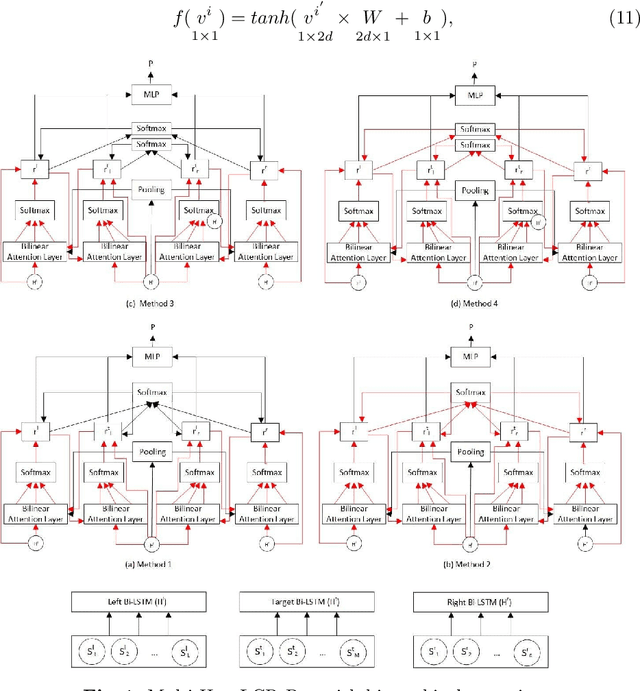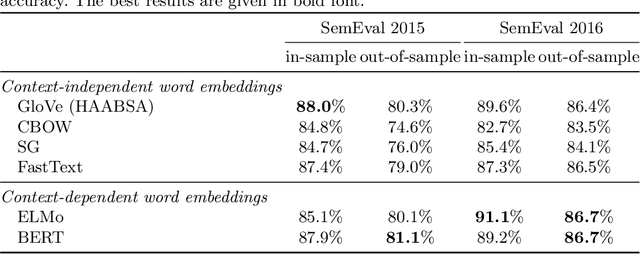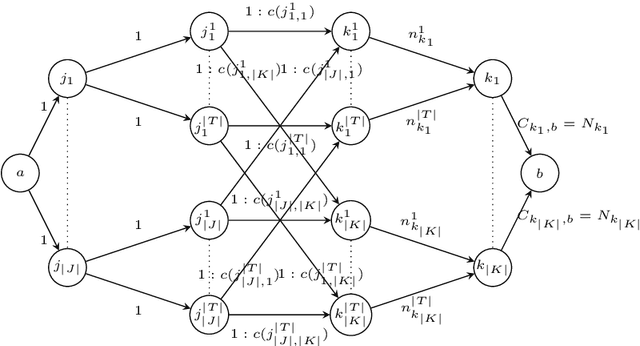Rommert Dekker
A Hybrid Approach for Aspect-Based Sentiment Analysis Using Deep Contextual Word Embeddings and Hierarchical Attention
Apr 18, 2020



Abstract:The Web has become the main platform where people express their opinions about entities of interest and their associated aspects. Aspect-Based Sentiment Analysis (ABSA) aims to automatically compute the sentiment towards these aspects from opinionated text. In this paper we extend the state-of-the-art Hybrid Approach for Aspect-Based Sentiment Analysis (HAABSA) method in two directions. First we replace the non-contextual word embeddings with deep contextual word embeddings in order to better cope with the word semantics in a given text. Second, we use hierarchical attention by adding an extra attention layer to the HAABSA high-level representations in order to increase the method flexibility in modeling the input data. Using two standard datasets (SemEval 2015 and SemEval 2016) we show that the proposed extensions improve the accuracy of the built model for ABSA.
Fair task allocation in transportation
Dec 07, 2016



Abstract:Task allocation problems have traditionally focused on cost optimization. However, more and more attention is being given to cases in which cost should not always be the sole or major consideration. In this paper we study a fair task allocation problem in transportation where an optimal allocation not only has low cost but more importantly, it distributes tasks as even as possible among heterogeneous participants who have different capacities and costs to execute tasks. To tackle this fair minimum cost allocation problem we analyze and solve it in two parts using two novel polynomial-time algorithms. We show that despite the new fairness criterion, the proposed algorithms can solve the fair minimum cost allocation problem optimally in polynomial time. In addition, we conduct an extensive set of experiments to investigate the trade-off between cost minimization and fairness. Our experimental results demonstrate the benefit of factoring fairness into task allocation. Among the majority of test instances, fairness comes with a very small price in terms of cost.
 Add to Chrome
Add to Chrome Add to Firefox
Add to Firefox Add to Edge
Add to Edge